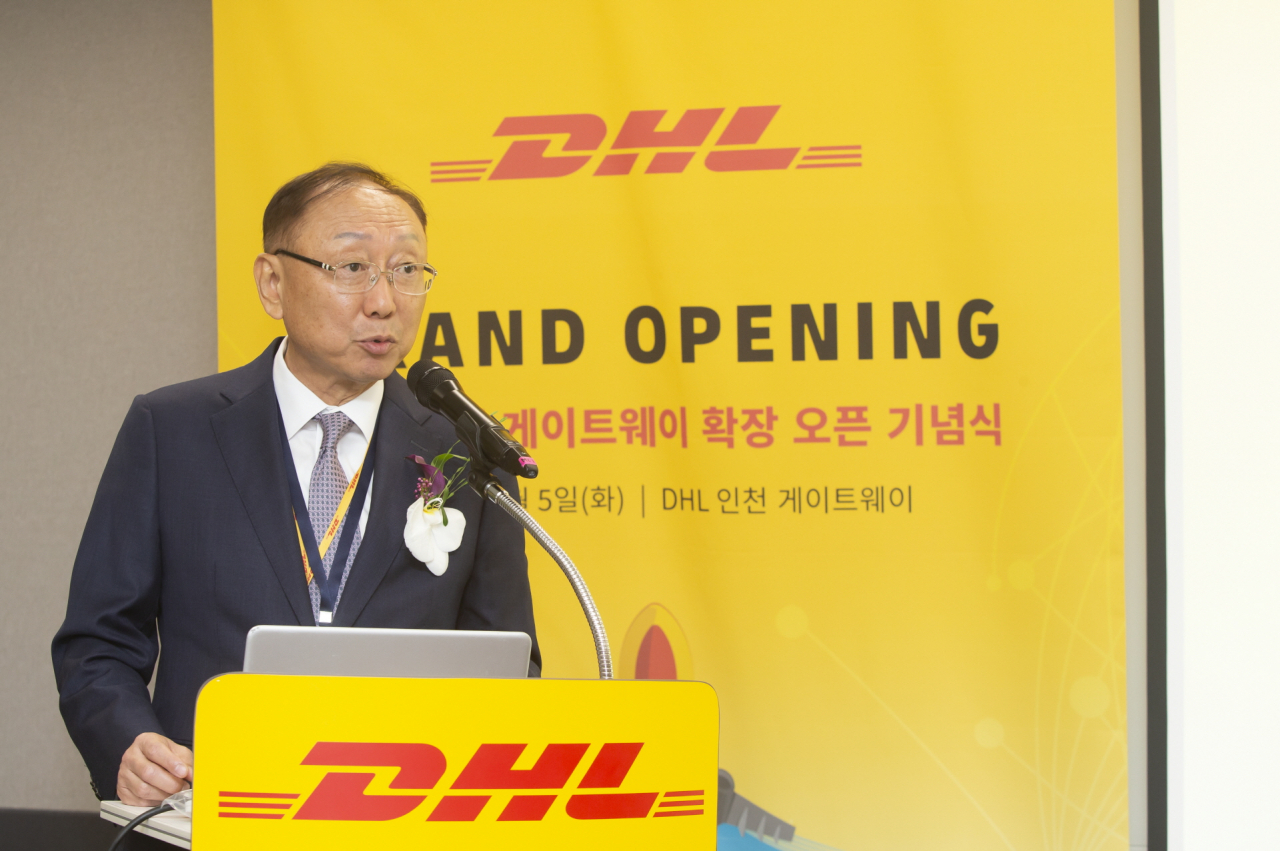 |
Han Byung-koo, country manager of DHL Express Korea, speaks during a press conference in Incheon, Tuesday. (DHL Express Korea) |
DHL Express Korea, the South Korean unit of the international express logistics service provider DHL Express, said Tuesday it started the full-fledged operation of a high-tech logistics terminal in Incheon after completing a three-year expansion project that has boosted cargo handling capacity threefold.
The global logistics firm invested 131 million euros ($141 million) to renovate and expand the DHL Incheon Gateway in 2019 in order to transform the facility into the largest logistics gateway in the Asia-Pacific region.
"We have been handling more cargo in South Korea in recent years, and we expect the demand to continue on its upward trajectory," said Sean Wall, executive vice president in charge of logistics and aviation business in the Asia-Pacific region at DHL Express, during a press conference held in Incheon.
"Between 2011 and now, the transit cargo handling volume we handled (in South Korea) grew more than threefold. The opening of the expanded Incheon Gateway arrives at the right time, as it plays an important role to facilitate regional and intra-Asia trade, particularly for the Northeast Asian region, including Dalian, Qingdao, Wuxi, Ulaanbaatar and Guam," he said.
According to DHL Express Korea, following the expansion, DHL Incheon Gateway now stands as the largest gateway in the Asia-Pacific region, standing on a gross floor area of 59,248 square meters, roughly three times its previous size of 19,946 square meters.
The gateway's cargo handling capacity has also been boosted by more than three times to 28,400 units per hour. The facility also houses a 5.5-kilometer-long conveyor belt and 19 automated X-ray inspection machines which will autonomously inspect shipment content for safety and compliance with regulations.
To minimize greenhouse gas emissions, DHL Express Korea added the new facility will further be powered by solar energy, with a 1-megawatt solar power generator that will span across the gateway facility's entire rooftop area of 5,700 square meters.
According to DHL Express Korea, the solar generator will produce energy that covers roughly 30 percent of the facility’s consumed energy, thus reducing around 650 metric tons of carbon emissions annually.
The DHL Incheon Gateway serves as a strategic facility that connects South Korea and the Asia-Pacific region to the world, according to Han Byung-koo, the country manager of DHL Express Korea. Han added that since its initial opening in 2009, the handling volume of import and export at Incheon Gateway has increased by more than 90 percent in 2022.
"With this expansion, we are confident that we can adeptly manage the surge in shipment volume and cater to the increasing demand for international express delivery over the coming decade," he said.






![[Today’s K-pop] Blackpink’s Jennie, Lisa invited to Coachella as solo acts](http://res.heraldm.com/phpwas/restmb_idxmake.php?idx=644&simg=/content/image/2024/11/21/20241121050099_0.jpg)
